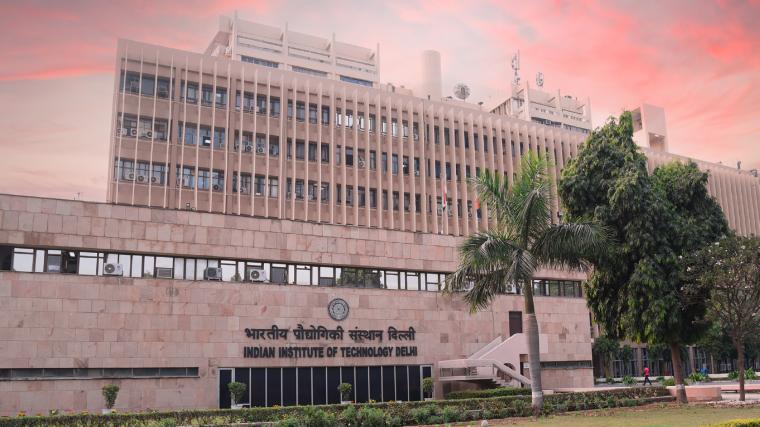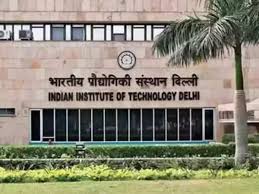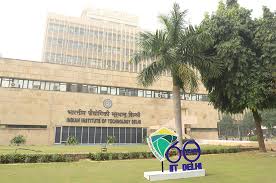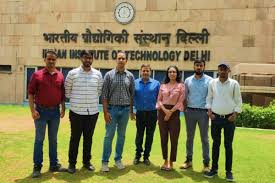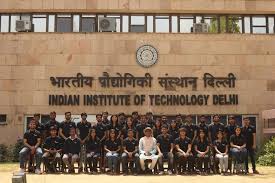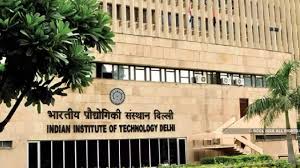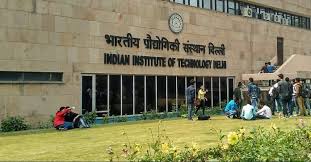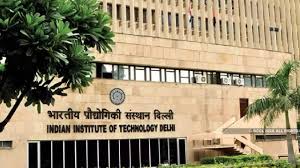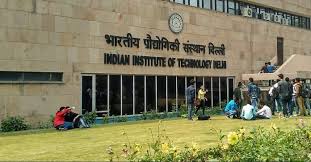- Overview
- Courses & Fees
- Admissions
- Placements
- Infrastructure
- Gallery
Overview
Indian Institute of Technology Delhi (IIT Delhi) is one of India's chief designing foundations, prestigious for its greatness in educating, examination, and development. Laid out in 1961, IIT Delhi is situated in Hauz Khas, New Delhi, and ranges more than 325 sections of land. The grounds brags express the-workmanship offices, present day labs, exceptional exploration places, and broad libraries.
IIT Delhi offers an extensive variety of undergrad, postgraduate, and doctoral projects across different disciplines including designing, innovation, and sciences. The establishment is known for its thorough scholarly educational program, exceptionally qualified personnel, and solid accentuation on innovative work. It teams up with various worldwide colleges and exploration associations, improving its worldwide standing.
The organization has a lively understudy local area, with various clubs and social orders that take special care of different interests, cultivating a comprehensive instructive encounter. IIT Delhi additionally has a few public and global gatherings, studios, and rivalries, giving understudies sufficient chances to exhibit their gifts and developments.
Graduated class of IIT Delhi have made huge commitments to the scholarly community, industry, and business all around the world. With a solid spotlight on mechanical headway and cultural effect, IIT Delhi keeps on assuming a crucial part in forming the fate of designing and innovation schooling in India and then some.
Courses & Fees
| Course | Fees | Eligibility |
| B.Tech | ₹2.55 Lakhs | 10+2 with 75% + JEE Advanced |
| M.Tech | ₹1.9 Lakhs | Graduation with 60% + GATE |
| M.Sc | ₹59,800 | Graduation with 55% + IIT JAM |
| MBA | ₹6.62 Lakhs | Graduation with 60% + CAT |
Admissions
Admission of students in IIT Delhi depends on the academic level of study; be it an undergraduate program, postgraduate program or even a doctoral level. Here's an overview of the process for each level: Here's an overview of the process for each level:Website: home.iitd.ac.in
Undergraduate Programs
Joint Entrance Examination (JEE) Main: The candidates first must sit for one of the tests by the National Testing Agency (NTA), the Joint Entrance Examination Main. This is the first cut that gives an interview panel an initial look at a candidate.
JEE Advanced: Students who qualify for the JEE Main can apply for JEE Advanced examination. This is one of the exams which is meant for admissions for the IITs only.
Rank and Counseling: After declaring the JEE Advanced rank, the candidates who qualify enter the Joint Seat Allocation Authority Counselling where the candidates fill choices according to the IITs they want to join and the branch/stream of engineering they wish to pursue.
Eligibility: For admission to B.Tech, a candidate should have passed his / her 10+2 or equivalent examination and should have taken Mathematics, Physics and Chemistry in his / her last pre-University examination.
POSTGRADUATE PROGRAMMES (M. TECH, M. SC., MBA)
GATE Exam (for M. Tech): Individuals should meet the Graduate Aptitude Test in Engineering (GATE) requirements. This institution’s admission requirements enable students who wish to join the postgraduate program to do so based on their performance in GATE examinations followed by interviews or written tests administered by IIT Delhi.
JAM Exam (for M. Sc): The candidate must possess any degree and qualify the Joint Admission Test for M. Sc (JAM). Counselling is Followed by admission with the rank obtained in JAM.
CAT Exam (for MBA): To apply for the Common Admission Test (CAT), the candidates are required to meet the minimum qualifying criteria.The final shortlisted candidates are again invited for the Group Discussion as well as the Personal Interviewing process.
Eligibility: Candidates must possess without fail a relevant undergraduate degree with a specific cut off percentage or CGPA.
Doctoral programs (PH.D.)
Application: Applicants must register through the online portal of IIT Delhi only for level-1 and send their level-2 applications through the institute portal only. Vacancies are advertised on a half-year basis, and recruitment for the positions is undertaken in two halves of the year.
Entrance Exam and Interview: The overall process of hiring for the shortlisted candidates usually involves taking a written examination and an interview. Depending on the department some universities consider GATE/NET/JRF scores as well.
Eligibility: Each applicant must have an academic background in the specific subject area with a minimum of a master’s degree. It is also possible to consider other candidates with a bachelor’s degree who meet all the remaining criteria of an outstanding worker.
International Students
Direct Admission: DASA scheme mentions that international students can apply directly for admission to undergraduate programs in India.
SAT Scores: This generally applies to students seeking admission into the undergraduate programs and is usually in reference to the scores obtained in SAT.
GRE/GMAT Scores: For postgraduate programs, the GRE or GMAT test results could be needed and authentic.
Key Points
Application Deadlines: He also must manage timelines for when different applications for the various exams and counseling are supposed to be submitted.
Documentation: The library also requires students to submit academic transcripts, certificates, exam score cards, and any other identity proof.
Preparation: Thus, arduous preparation for entrance is necessary because the competition is cut-throat given the nature of the exams.
Placements
The placement process at IIT Delhi is a well-structured and systematic procedure aimed at providing students with excellent career opportunities. The process generally follows these steps:
Pre-Placement Activities
Training and Workshops: IIT Delhi conducts various training sessions, workshops, and mock interviews to prepare students for the recruitment process.
Resume Preparation: Students are guided on how to prepare effective resumes and cover letters.
Placement Registration
Registration: Interested students need to register with the Training and Placement (T&P) cell.
Profile Verification: Students’ academic and personal profiles are verified for eligibility.
Pre-Placement Talks (PPTs): Companies conduct presentations to provide information about their business, job roles, and career opportunities.
Application Process
Job Applications: Students apply to companies that match their career interests and goals.
Selection Process
Aptitude Tests: Companies often begin with aptitude tests to shortlist candidates.
Group Discussions (GDs): Shortlisted candidates may participate in group discussions to assess their communication and teamwork skills.
Technical and HR Interviews: Final rounds usually consist of technical interviews, followed by HR interviews.
Offers and Acceptance
Job Offers: Companies extend job offers to be selected candidates.
Offer Acceptance: Students can accept or decline the offers based on their preferences.
List of Companies
Infrastructure
IIT Delhi boasts world-class infrastructure that supports a conducive learning and research environment:
Academic Buildings
Modern classrooms are equipped with audio-visual aids.
Well-equipped laboratories and research centers.
Advanced computer labs with high-speed internet.
Library
The Central Library offers a vast collection of books, journals, and digital resources.
Reading rooms and study spaces for students.
Hostels
Separate hostels for male and female students with all necessary amenities.
Common rooms, recreational facilities, and internet connectivity.
Sports and Recreation
Extensive sports facilities including cricket, football, tennis, badminton, and basketball courts.
Gymnasiums and swimming pools.
Cultural and recreational clubs and societies.
Health and Wellness
A fully functional healthcare center with medical staff and emergency services.
Counseling services for mental health support.
Innovation and Incubation Centers.
Dedicated centers for innovation and entrepreneurship.
Support for startups and research projects through mentorship and funding.
Dining and Shopping
Multiple dining halls and cafeterias offering diverse cuisines.
Convenience stores and shopping centers within the campus.
Overall, IIT Delhi provides a robust and comprehensive infrastructure that supports academic excellence, research innovation, and overall student well-being.





